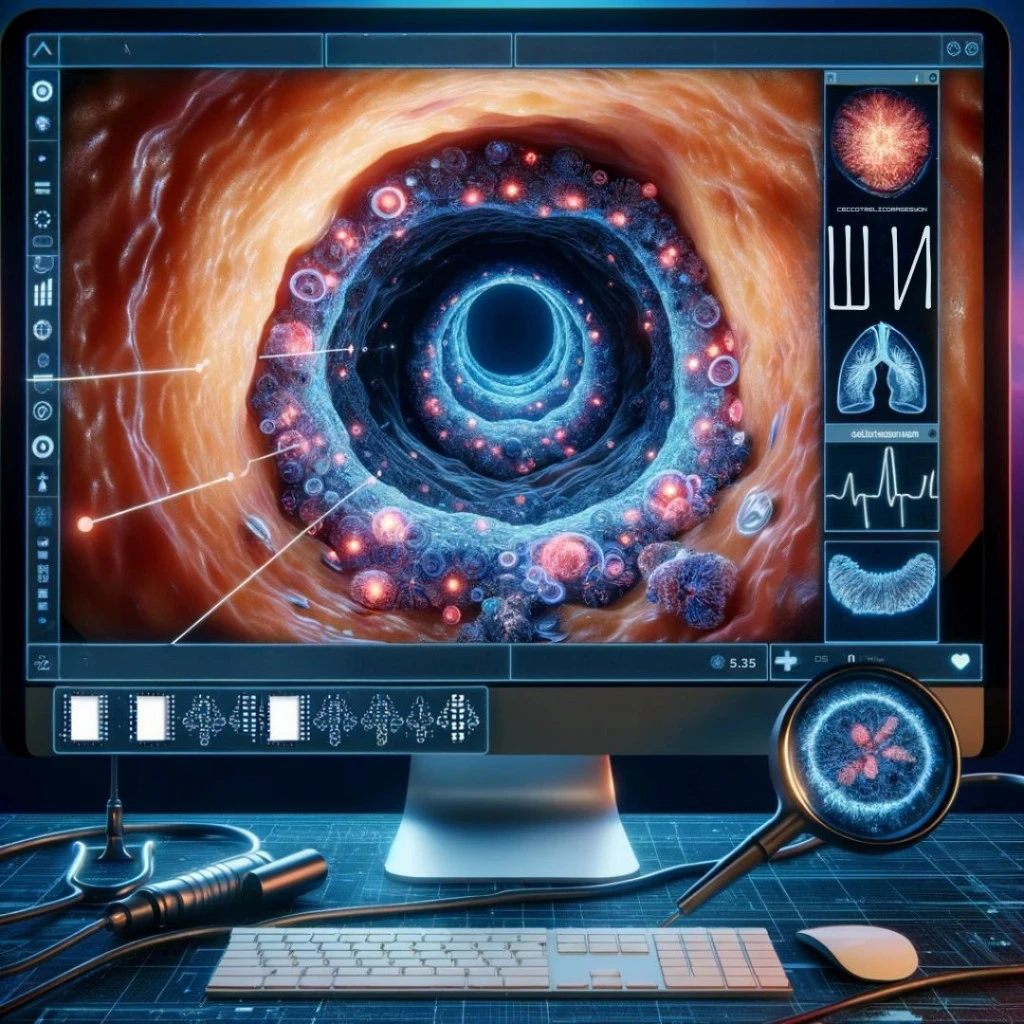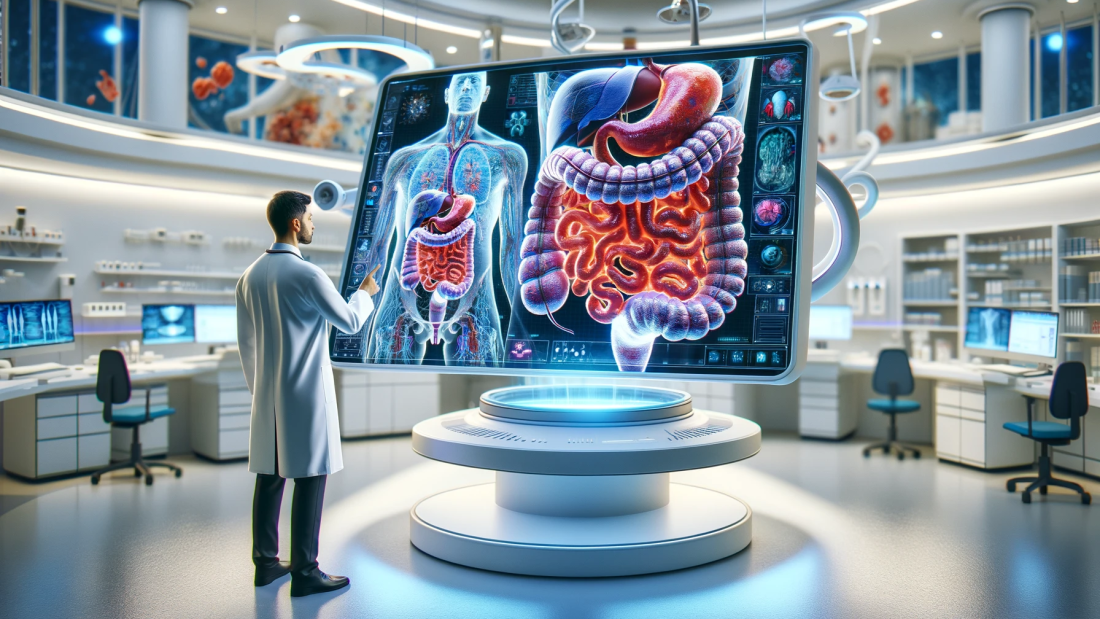A Glimpse into Innovative Technologies Transforming Digestive Health Research
In medical science, Gastroenterology is a beacon of rapid advancement and innovation. This field, dedicated to the study and treatment of the digestive system, is witnessing an unprecedented integration of cutting-edge technologies that promise to revolutionize diagnostic and therapeutic approaches. Let’s briefly delve into the latest advancements in Gastroenterology research and advanced imaging techniques, molecular diagnostics, and beyond.
The Revolution of Imaging Technologies in Digestive Health
The field of gastroenterology is experiencing rapid advancements and innovation, particularly in the integration of cutting-edge imaging technologies. High-definition and magnification endoscopies are now providing unparalleled clarity and detail, allowing for the early detection of previously indiscernible gastrointestinal lesions and abnormalities. Moreover, confocal laser endomicroscopy (CLE) offers real-time, microscopic analysis of mucosal tissues during endoscopic procedures, enabling instant diagnosis and tailored interventions.
Molecular Diagnostics: Decoding the Microscopic World
The advent of molecular diagnostics has ushered in a new era of precision medicine in gastroenterology. Techniques such as next-generation sequencing (NGS) and polymerase chain reaction (PCR) are now used to identify genetic mutations, microbial compositions, and biomarkers associated with gastrointestinal disorders. By providing molecular insights, healthcare professionals can detect diseases at their earliest stages, allowing for timely intervention and personalized treatment plans tailored to individual patients, thus improving patient outcomes and overall healthcare efficacy.

Artificial Intelligence: The Future of Gastrointestinal Research
Artificial intelligence (AI) is rapidly emerging as a pivotal tool in gastroenterology research. AI algorithms, trained on vast datasets of endoscopic images and clinical data, are now capable of identifying subtle patterns and anomalies that may elude the human eye. This AI-driven approach enhances diagnostic accuracy, particularly in the detection of early-stage cancers and precancerous conditions, setting the stage for timely.
The Role of Wearable Technologies
Wearable technologies are also leaving their imprint in Gastroenterology , providing fresh perspectives into the functioning of the digestive system outside the clinical setting. Devices like smart pills, equipped with sensors and cameras, traverse the gastrointestinal tract, transmitting real-time data on motility, pH levels, and the presence of specific compounds. This non-invasive method provides a comprehensive view of digestive health, empowering both patients and physicians with actionable information.
Researchers at California's GI Innovation Group have created a wearable device that tracks the stomach's electrical activity, functioning similarly to how an ECG records heart activity. This innovative tool aims to enable individuals with gastrointestinal issues to more precisely assess the effectiveness of their treatments and dietary choices.
Conclusion
The field of Gastroenterology research is witnessing a significant evolution, thanks to the integration of cutting-edge technologies. From sophisticated imaging techniques and molecular diagnostics to the application of artificial intelligence and innovative wearable devices, these advancements hold the promise of deepening our understanding of gastrointestinal disorders and leading the way to personalized and effective treatment options. As we navigate this promising terrain, it's crucial to ensure that technological progress is aligned with ethical standards, safeguarding a future for gastroenterology that is both promising and principled.
If you are experiencing gastrointestinal issues, you might be interested in the clinical trials currently being conducted by FOMAT Medical Research. We're actively recruiting participants for studies aimed at addressing a variety of GI problems. These trials are an opportunity to access new treatments and contribute to medical research that could benefit many. For more information on how you can get involved and potentially benefit from these cutting-edge advancements in digestive health.

